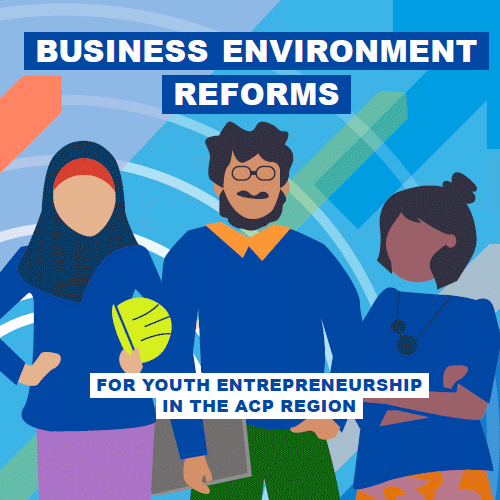This report aims to showcase opportunities for promoting youth entrepreneurship in countries in African, the Caribbean, and Pacific (ACP) regions by implementing strategic business environment reforms (BER). It delves into the challenges faced by young entrepreneurs in the current ACP contexts and suggests ways for policymakers to improve the conditions for starting and running businesses.
Young entrepreneurs often encounter challenges in their business ecosystems, such as limited access to finance, inadequate skills and experience, and insufficient institutional support. However, these challenges are not isolated and are often intertwined with broader issues in the business environment, creating obstacles to doing business.
The report evaluates challenges, insights, and recommendations for reforms within this context to ensure that business ecosystem reforms can effectively address both issues. Policymakers should introduce reforms that target both the specific challenges faced by young entrepreneurs and the broader business constraints that hinder their success. By doing so, policymakers can establish a more supportive ecosystem that enables young entrepreneurs to thrive and contribute to economic development.
The main reflections for policymakers regarding the challenges, insights and recommendations presented in the report are summarised below. Further details on each can be found in the subsequent sections of the report.
Key Findings:
- The regulatory and policy environments of many ACP countries do not provide favourable conditions for entrepreneurship or scaling.
- Policymakers tend to prioritise supply-side policies toward youth entrepreneurship, and often neglect to tackle demand-side reforms that address the constraints and institutional conditions that impede their success.
- National micro, small and medium enterprises (MSME) and entrepreneurship policies tend to be narrow in focus and often overlook the unique needs of young entrepreneurs at different stages of enterprise development.
- Reforms and initiatives aimed at supporting young entrepreneurs may suffer from a lack of monitoring and coordination, which can limit their potential impact.


